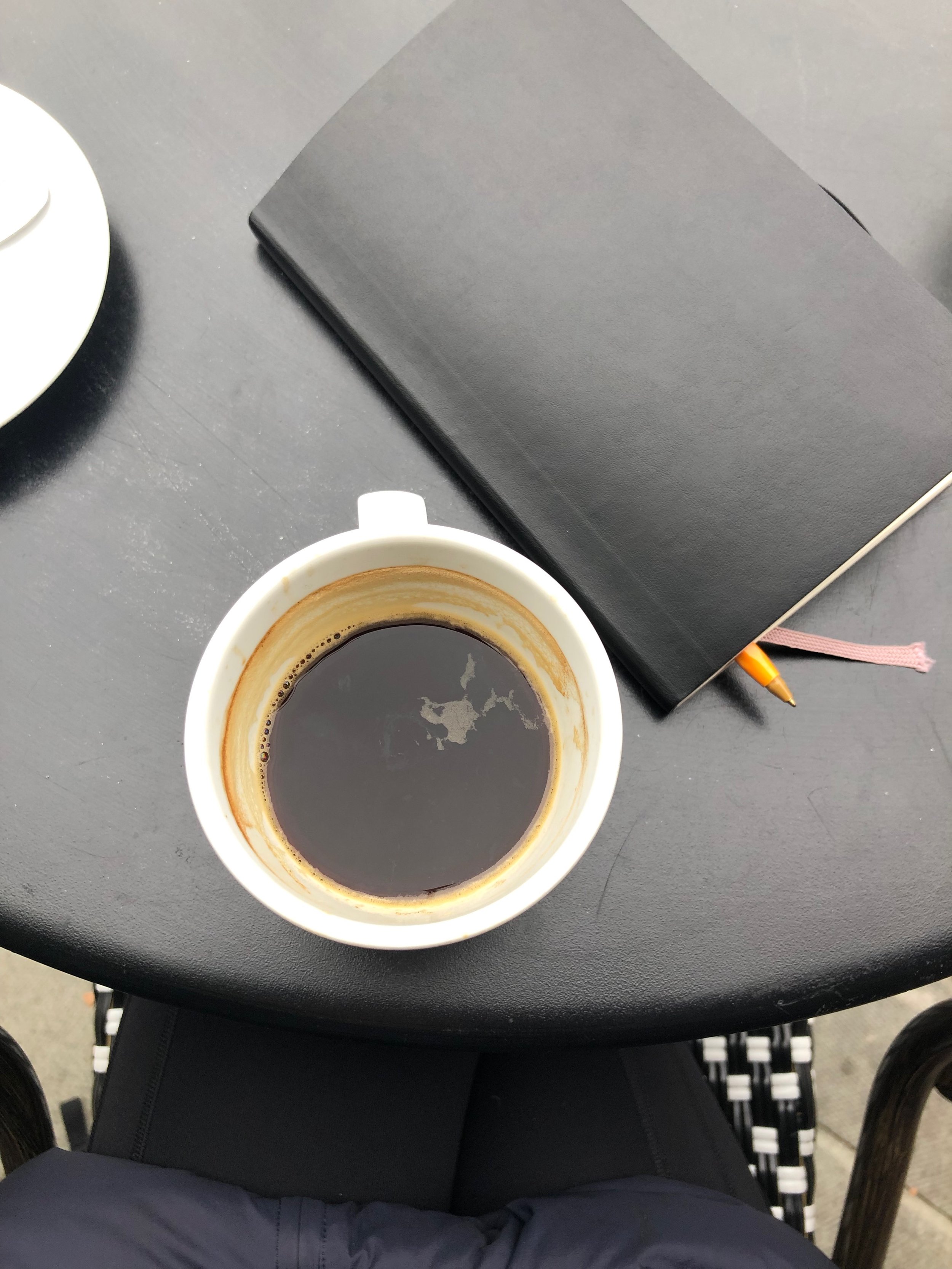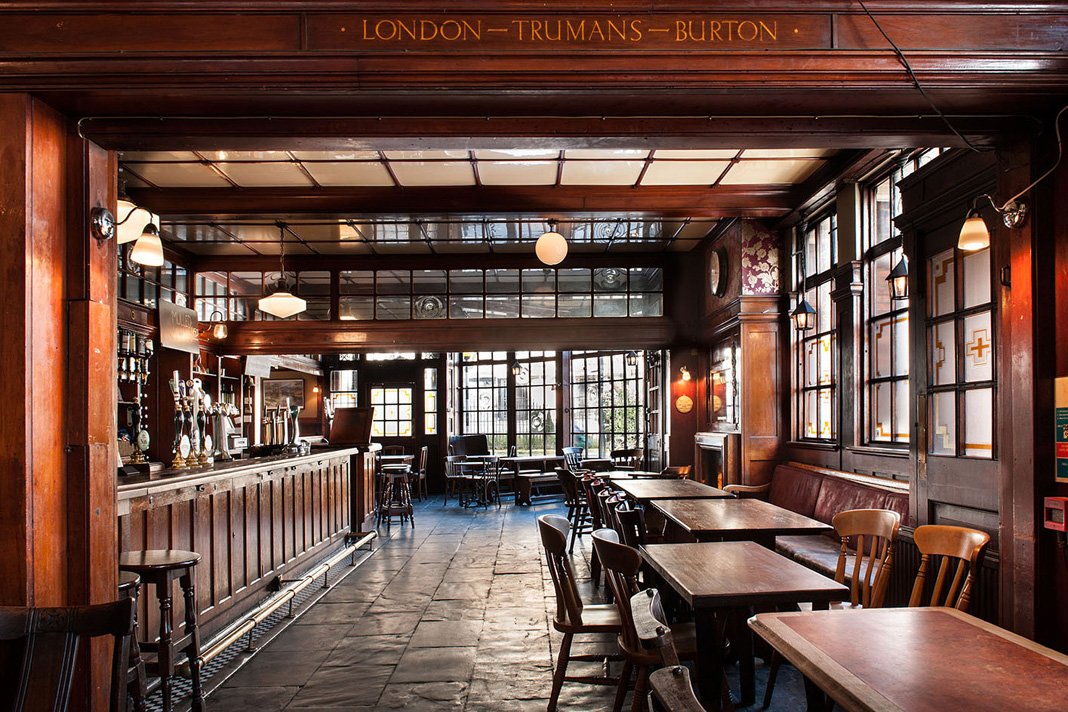THOUGHT EXPERIMENTS IN PUBS
PORTOBELLO
HALLOWEEN

1 LIGHT IN THE DARK
Miriam’s mood has plummeted with the temperatures and darkened with the shortening days.
Her GP calls it ‘Seasonal Affective Disorder’.
He’s prescribed her with various different psychiatric things over the years, but none have been particularly effective and some have come with quite nasty side effects.
After a grim, drizzly week of working from home, Miriam decides she must go out. She sets off for a favourite cafe. It’s 5pm and already the day is fading.
On the way, she passes a bookshop with a display of second hand books outside. She realises it must be nearly Halloween because most of the books seem to be about ghosts and witchcraft. She shudders. She hates this time of year.
But one book catches her eye, mostly because of its cover. Bright orange and rich burgundy and flashes of yellow. It looks like a flame amongst the drab surroundings. She feels drawn to it.
One week later, Miriam’s friends are surprised at the change in her. She looks brighter and she’s much more smiley. Furthermore, she’s arranged tonight’s dinner party on Halloween, a day she used to dread.
Pilar:
“I thought you hated Halloween! What’s come over you?”
Miriam:
“Haha you’re right, I used to hate it. It used to symbolise everything I struggled with in the winter: dark, cold, creepy, hopeless feelings. But recently I’ve come across another way of looking at “the dark”. I’m seeing it as an essential counterpoint to the light.”
Pilar:
“Say more?”
Miriam:
“I came across this book which explained the Celtic origins of Halloween.
The Celtic calendar split the year into two halves instead of four seasons:
the light half of the year
and the dark half of the year.
The Celts celebrated the beginning of the light half of the year in May with a festival called Beltane. They celebrated the beginning of the dark half of the year in October with Samhain, which became Halloween.
Learning about Samhain and the way the Celts started the dark half of the year has made it seem like an opportunity to me, rather than something to get through.”
Pilar:
“How is it an opportunity?”
Miriam:
“In the ancient Celtic tradition, people worked with the seasons rather than against them. They slowed down, lit fires, gathered together, enjoyed the fruits of summer, celebrated, rested. All my life I’ve been trying to power through the winter as I would the Summer, but this reframe has helped me to see things differently.”
Annie:
“That’s cool, but it’s not just the Celts...all sorts of traditions incorporate seasonal change into their wisdom. Chinese Medicine, Ayurvedic medicine, etc. It’s just Western Medicine that leaves seasonal stuff out.”
Miriam:
“Yes! My GP didn’t suggest any of that stuff, just antidepressants and more electric light. This year I’m going to try a more holistic approach: slowing down, doing less, creating warmth, lighting candles, hibernating, maybe some revelling. And then I plan to celebrate the returning light in the Spring!”
The book that Miriam picked up was titled “Paganism for Wellbeing”.
QUESTIONS TO CONSIDER:
What would you say if you were one of Miriam’s friends?
What do you think of her experience?
Why do you think ancient wisdom traditions focus heavily on the seasons?
Why might the Celts have wanted to celebrate the beginning of the dark half of the year?
How important do you think seasons are to humans?
Would you prefer to be season-less (the same all year round), or season-led (shifting your way of life to match the seasons)?
How feasible is it to be season-led in a modern world?
What do you think of the diagnosis ‘Seasonal Affective Disorder’?
Do you think Miriam’s new strategy will be effective?
SOURCE: BA, THOUGHT EXPERIMENTS IN PUBS Group Member

2 BE AFRAID
You’re standing outside the Odeon Luxe in Leicester Square trying to decide what to watch. Next to you, a couple seem to be doing the same. You listen to their conversation:
Miki:
“There are a lot of horrors! But I guess that’s because it's Halloween.”
Sally:
“It’s madness. Why would people deliberately scare themselves? I don’t understand it. If I could, I’d never feel fear again.”
Miki:
“You wouldn’t last very long! Fear is essential. It keeps us alive. If you weren’t scared of anything, you wouldn’t be able to assess danger.”
The billboard changes and advertises a film titled:
HORRENDOUS HORRIFFIC HORROR
“The scariest film you’ll ever see - prepare to be haunted for life!”
Sally continues:
“I know what you mean, but this kind of film feels like it would make you unnecessary scared. Life is hard enough as it is. Why would anyone volunteer to be haunted for life?”
Miki considers for a moment and then responds:
“I think this one is actually a comedy. Like one of those super over the top scary films that you’re meant to laugh at rather than be scared by….
[He pauses]
… Now that I think about it, I think that genre actually reveals why humans like being scared by movies.”
Sally:
“What do you mean?”
Miki:
“Well, if you can be scared in a controlled environment, it makes fear a lot more manageable. And if you can actually laugh at the thing that’s supposed to be scary, you go one step further in conquering unnecessary fear.”
Sally:
“That makes me think of that scene in Harry Potter when they’re all fighting the boggart.
The boggart is a creature that turns into whatever you’re most scared of.
The way to defeat it is with a spell called ‘ridiculous’. You have to re-imagine it as something silly rather than scary and shout ‘ridiculous’.
You can’t be scared of something you find ridiculous.”
Miki:
“So maybe that’s what horror films are all about: conquering irrational fear. It’s a film, so it can’t really hurt you, so it’s an opportunity to feel fear in a safe environment and sometimes even laugh at it.”
Sally:
“Yeah, I guess even in the most scary films, the equivalent to casting the ‘ridiculous’ spell is to remember that all the zombies are really extras in lots of makeup and they all do boring human things like eat sandwiches and go to the loo in the breaks.”
Miki:
“Haha I feel empowered to see any of these films now. Shall we see HORRENDOUS HORRIFIC HORROR?”
While Sally and Miki have been talking, you’ve noticed a steady stream of ashen faced, horrified looking people coming out of one of the Screens showing “HORRIFIC HORRENDOUS HORROR”. They don’t look very amused.
QUESTIONS TO CONSIDER:
What would you do?
What do you think of Sally and Miki’s theory about horror films? Do you think it will protect them against ‘haunting’? Should they see the film?
Why do you think people watch horror films?
Does the tradition of dressing up as something scary and ‘trick or treating’ at Halloween have anything in common with watching horror films?
How important is fear?
If you had the opportunity to never feel fear again, would you take it? If yes, what might you lose?
Why are some things scary to one person and not to someone else?
In the Harry Potter book that Sally referred to, Harry reveals that his boggart would take the shape of a Dementor, a creature that makes you feel all your worst feelings. Professor Lupin says “I'm very impressed. That suggests that what you fear most of all... is fear itself. This is very wise.” (Rowling, 1999). Do you agree that fear itself is the wisest thing to be most afraid of?
SOURCES:
BA, THOUGHT EXPERIMENTS IN PUBS group member
Rowling, J. K. (1999). Harry Potter and the prisoner of Azkaban. Bloomsbury.

3 TAROT
You look at the cards spread out on your friend Harj’s living room floor.
He’s invited a group of you over for a Halloween Tarot reading.
Nancy asks:
“So why are we doing this again?”
Harj says:
“It’s traditional to do divination and prophesy at Halloween. It’s the time of year when the veil between the real world and the spirit world is thinnest.”
Nancy and Mel look at each other, somewhat sceptically.
Harj says:
“Ok, you may be doubtful, but two separate traditions converge on this. In the Mexican tradition of Los Dia De Los Muertos, spirits and ghosts of ancestors are said to visit. And in the Celtic tradition, Samhain was believed to be a liminal time when the boundary between the real and the supernatural was blurred. People did rituals to access the messages of the ancestors and supernatural spirits.”
Mel says:
“Well I don’t believe it, but I’ll give it a go.”
Nancy says:
“It gives me the creeps a bit, but ok, how do we do it?”
Harj says:
“I’m not entirely sure how all the complex tarot readings work, but we can each draw a single card and then interpret it using this book. It should give us some guidance about what’s coming up in our lives.”
Nancy picks a card, then Mel, then Harj.
It’s your turn.
You pick a card and turn it over. It reads:
13. DEATH
You look up at Harj.
He looks sheepish,
“Oh shit. Sorry. But don’t panic, hang on, let me look at the book…. OK, the book says:
“Many people recoil when the Death card appears in a reading, as if it were an omen soon to come, suggesting a passing from this world. Rarely does this card indicate an upcoming loss of life; however, it can very well suggest that life as you know it may be due for a shift. It is time to close a chapter, move on, and let go of something that has run its course.
Change, after all, like death, is inevitable.” (Cullinane, 2022)
Nancy:
“Well you’ve definitely got the most appropriate card for tonight! Halloween is all about death and skulls and ghosts. I even saw someone dressed up as the grim reaper on the way here. I’ve just got the ’two of cups’…though, now that I think about it, the ‘two of cups’ message is relevant to a work situation I’m dealing with.”
QUESTIONS TO CONSIDER:
How would you feel in this situation?
What do you think of traditions like Los Dia De Los Muertos and Samhain?
What about fortune telling/prophecy in general?
Would the card mean anything to you? Why/why not?
Death is number 13 in the deck, a number many people feel superstitious about. What do you think about superstition?
How do you feel about death?
Is death something to be afraid of?
Why do you think Halloween is so imbued with symbols of death?
Why might humans find things like Tarot meaningful?
How might such rituals be beneficial? How might they be harmful?
What do you think of the statement: “Change, after all, like death, is inevitable.” (Cullinane, 2022)? Is it freeing or scary?
SOURCES:
BA, THOUGHT EXPERIMENTS IN PUBS Group Member
Cullinane, M. J. (2022). The Guardian of the Night Tarot: A 78-Card Deck and Guidebook. Hay House Inc.
NOVEMBER NEWSLETTER coming out this weekend. Sign up to receive it here:
FEEDBACK
(Messages are anonymous unless you include your name/contact details)

Help me to write more THOUGHT EXPERIMENTS and arrange more meetups by…
Thank you, your support means a lot :-)
Instagram: @thoughtexperimentsinpubs

